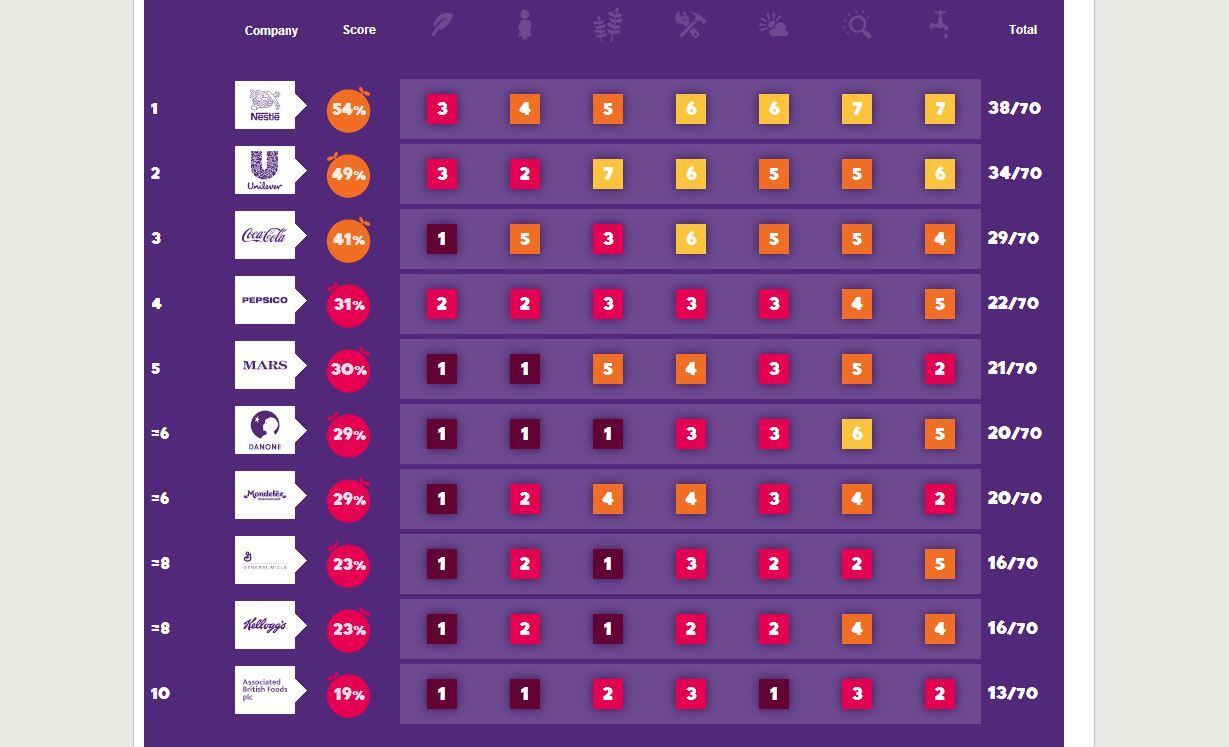“Unilever has worked with Oxfam on a number of activities over a number of years now, including the GROW Campaign that calls for a more equitable and sustainable use of scarce resources,” the Dutch-British food giant said.
“Unilever feels that the report has missed an opportunity to look at the full range of organisations that need to come together on this. Change of this nature requires wide partnerships, and needs to stretch beyond looking at the role of branded food companies.”
What about nutrition?
Unilever also said the report missed the chance to raise the profile of global nutrition programmes that are underway.
“More attention needs to be paid to the importance of improved nutrition, in addition to the issue of food security and we are working with the UN Secretary General’s Zero Hunger Campaign and within the SUN (Scaling Up Nutrition) Alliance to provide support for the broad-scale approach to eradicating hunger,” it said.
“Unilever will continue to work on traceability and transparency of its raw material supply together with its suppliers and will seek to engage in partnerships with all relevant stakeholders to meet the targets of our Sustainable Living Plan and help solve some of the issues raised in the report.”
Unilever was one of 10 food giants including Nestlé, Mars, Danone and ABF that were named and shamed in Oxfam's Behind the Brands report. Nestlé was ranked the most ethical brand, ABF the least.
The brands were graded in seven criteria: Treatment of workers, farmers, women, land and water as well as climate and overall transparency.
Unilever continued: “Although branded good companies have initiated some innovative programmes to contribute to the solutions for some of the big issues, brand manufacturers are only part of the solution and we believe that meaningful progress can only be made when all relevant stakeholders – including primary producers, first processors, traders, retailers, civil society and governments – work together.”

“We set out a comprehensive, 10-year plan – the Unilever Sustainable Living Plan – in 2010, taking responsibility not just for our own direct operations but for our suppliers, distributors and - crucially - for how our consumers use our brands. Underpinning the Plan are over 50 targets, including commitments to helping smallholder farmers.”
“…lot more effort…”
Nestlé agreed more stakeholders needed to be involved: “Food security is one of the most important global issues, and the food industry has a vital role to play in accelerating progress toward a sustainable food system. While we are pleased that we ranked highest in this survey, we recognise that improving food security worldwide requires a lot more effort by all stakeholders.”
“We are fully committed to further improving the livelihoods of small farmers through our Rural Development Framework. By working cooperatively with more than 600,000 famers that provide our raw materials, we are in a unique position to make a real impact. The sustainable use of water is also one of our highest priorities.”
It said it was the first food company to partner with the Fair Labor Association (FLA), “to address the difficult problems of social conditions and child labour in our cocoa supply chain.”
“We will support the efforts of Oxfam and other NGOs to make progress toward a sustainable food system, and we believe that a cooperative approach by civil society, government and business is required to bring this about.”
